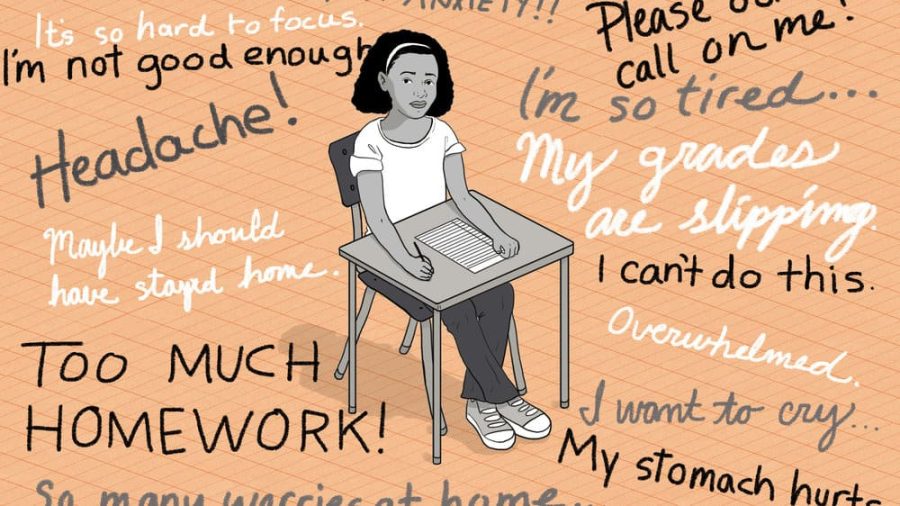Students Mental Health
February 15, 2022
I recently watched a Ted Talk on “Why students should have mental health days” in a class by Hailey Hardcastle, a young woman who is 2019 passed a law in Oregon that allows students to take a mental health day off from school, the same way one would a sick day. I never thought about it until that day when I got out of class, but, why don’t we have mental health days, or what even are mental health days, and why should we even have mental health days? I asked myself various questions regarding that situation onwards, and now finally understand.
Technically speaking, students have a certain amount of potential excused absences. But, why not an actual mental health day from school like how Hailey Hardcastle and her team achieved for the state of Oregon. Having one of these available in the blink of an eye can be super beneficial. The whole point of a mental health day is to recharge your energy to prevent burning out at school because your stress levels have peaked. Although you can use them in other ways too like catching up on schoolwork or enjoying some leisure time to do whatever you feel like doing. I think I speak for everyone when I say that students would much enjoy having one, especially with AP tests coming up for those who are taking them, SATs, PSAT’s and whatever else you got going on. It’d be a good opportunity to clear our heads and relieve ourselves of the extreme amount of anxiety we’ve been building up and carrying.
Another question that came to my mind along with the rest is, can teachers call our parents or send us to the office if they notice a shift in our mental behavior? This came up because I simply wanted to know how resourceful a teacher’s ear can be. The short answer provided by Mrs. Bertok, a Language Arts teacher in Santiago High School is yes. But! According to Mrs. Bertok, a teacher will always respect a student and ask them privately after class or school even before thinking of emailing their guardians or sending them to the office or a counselor. However, despite Mrs. Bertok’s response, if a teacher asked us if something was on our mind because they noticed that we weren’t performing how we usually are, would we the students be 100% honest? Or lie as the situation is awkward and uncomfortable? Similarly, for example, whenever my parents ask me how I’m doing, I never seem to give them the full apple. I simply just exit the room with an “I’m good” and go on my day. I always wonder what would happen if I said that I was struggling? Honestly, if you’re a parent, teacher, or an adult in general, I genuinely think that the key is in how you ask. Respect is necessary, as children and humans won’t always want to share every detail of their inner and outer worlds with their parents or others even though it’s one of the best things we could do when we’re down in the dumps mentally. “The more a parent insists a child shares things with them that they’re not ready to, the more likely a child is to hide and lie about aspects of their life,” Shenker says.

In closing, a mental health day would be amazing. However, would we use it if we had one, or are we too nervous to talk about what’s going on in our life to an adult? Well, I suppose the first step is getting one first. And if that day comes, use that mental health day to your advantage. Re-charge and re-compose yourself. Student life can be hard, but a day off to relieve some anxiety and stress would be helpful.








